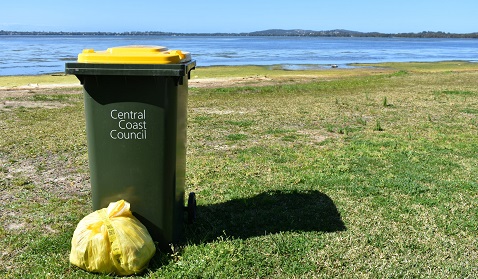A soft plastics collection trial on the NSW Central Coast is set to be scaled up and rolled out to 140,000 households in the coming months.
In what is being billed as the forerunner to a national product stewardship scheme for plastics, the Central Coast Council has partnered with Australian recycler iQRenew, and multinational food manufacturer Nestle to collect soft plastics for reprocessing into food-grade plastics.
Until now, the only option for consumers to recycle soft plastics in Australia has been to drop these off at REDcycle bins located at participating supermarkets.
However, 2000 households in the Central Coast Council are currently involved in a unique trial to recycle soft plastics through their yellow recycling bins.
The participating households are being provided yellow “Curby bags” (and tags) for filling with clean soft plastics for placement in yellow bins. The bags are then retrieved at a council material recycling facility for shredding and reprocessing.
Residents have been advised the Curby program will be rolled out to the remaining 140,000 households in the Central Coast Council area.
The Australian Food and Grocery Council (AFGC) plans to use the Curby trial as the basis of a product stewardship scheme, having secured a $986,000 grant from the Commonwealth’s National Product Stewardship Investment Fund (NPSIF) in 2020 as part of its National Plastic Recycling Scheme to reprocess 190,000 tonnes of soft plastic packaging annually.
Last week, the AFGC met with the Australian Local Government Association (ALGA) to discuss how the scheme proposes to support the National Packaging Targets, which are to:
Earlier this month, in a follow-up to the Central Coast trial, multinational food company Nestle announced it had co-developed Australia’s first soft plastic food wrapper made with recycled content.
Nestle will use the wrapper to package chocolate bars as part of its commitment to have 100 percent of its packaging being recyclable or reusable by 2025.



